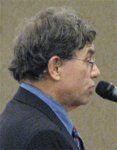Antipsychotics and the pediatric community
The Food and Drug Administration weighs in about whether to approve schizophrenia medication for adolescents.

However, discussion on the June panel of psychiatrists, cardiologists, biostatisticians, and other outside experts was replete with serious concerns. They addressed known and unknown adverse effects, the brevity of the studies approvals would be based on, the recent large increases in the number of children diagnosed as bipolar, and fears that the drugs are used inappropriately and will be used in ages younger than FDA approval indicates.
The drugs being considered are quetiapine (Seroquel), olanzapine (Zyprexa), and ziprasidone (Geodon). All of the drugs are FDA approved for use in adults, and are currently prescribed off-label to children.
The agency has said it is inclined to agree with the company sponsors that the evidence submitted supports the efficacy and safety of the drugs for these purposes. FDA approval would greatly expand the approved drug options for children. Currently only two antipsychotics are FDA approved for those age groups: risperidone (Risperdal) and aripiprazole (Abilify).
Studies submitted by the companies looked at the drugs' use in children over several months. The potential adverse effects with atypical antipsychotic drugs, FDA said, includes somnolence, weight gain, increases in blood lipids and glucose, acute extrapyramidal symptoms, and tardive dyskinesia. Other concerns discussed in the meeting include heart rate increase, suicidality, and prolonged QTc.
FDA and committee members noted that these risks are of particular concern in children who may take the drugs for many years, since the drugs could affect growth and development.
In light of the lack of long-term studies, FDA was asked whether families may be misled by statements that FDA standards are so strict that approved drugs must be safe. Robert Temple, MD, director of FDA's Office of Drug Evaluation, said that question is not the legal test. "The legal test is whether it's effective and whether it's safe," he said.

During the public comment period, both the American Psychiatric Association (APA) and the American Academy of Child and Adolescent Psychiatry (AACAP) called for caution on the medications. Laurence Greenhill, MD, AACAP president-elect, said his group supports the availability of a wide array of treatment options. However, "although a few clinical trials have suggested that these antipsychotic medications may be effective in pediatric populations, the lack of systematically collected safety data when youth are exposed for very long periods-that may affect their development-indicates the need for more large-scale phase IV studies."
David Fassler, MD, representing the APA, also called for studies on long-term use. He indicated that although the drugs can be helpful, there is concern about their increased use in children and adolescents.
Kenneth Towbin, MD, committee member and chief of Clinical Child and Adolescent Psychiatry at the National Institute of Mental Health's Mood and Anxiety Disorders Program, noted the number of children diagnosed with bipolar disorder has increased "many, many fold" in the last 10 to 15 years, up from an almost negligible rate in 1994.